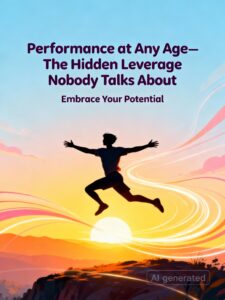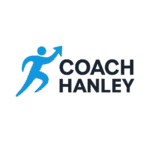Is your age holding you back? Find out how ability, experience, and mindset turn the “age handicap” on its head—plus real advice you can use today.

Blog by Peter Hanley bizbitspro.com
What the Numbers Say—Breaking Down Age and Performance
So, let’s call out the elephant in the room: that nagging, ancient voice croaking, “You’re too old for this.” Is it folklore, fact, or something more slippery—like a mirage that vanishes the closer you look?
Longitudinal Studies: Where Age Hurts and Where It Doesn’t
Here’s a plot twist most people miss—research does show that memory and sheer physical horsepower (think sprint times or quick calculations) tend to ebb over the years. Starting by age 30, cognitive speed and agility can dip if you never mix things up or challenge yourself. Yet, that’s merely one chapter: across all ages, individuals can plot dramatic upticks in ability simply by staying curious, learning, and—quite literally—using it so they don’t lose it.
But hold on. Practice doesn’t make perfect—it makes progress, and that progress rides a quirky rollercoaster. In fact, practicing new skills often brings sharper results in older adults than expected. Though some tasks get tougher, a meaningful slice of skills buck the age curve and actually improve with time, especially those tied to experience and strategy.
Performance Peaks by Field—From Athletics to Entrepreneurship
Now the fun part: “peak age” doesn’t mean what you think it does. Sprinters peak young, chess grandmasters bloom later, and entrepreneurs? The most successful startup founders in recent years are, on average, in their 40s and 50s. In some fields—creative arts, leadership, decision-heavy roles—ability is less about physical capacity and more about pattern recognition, synthesis, and people skills, which flourish with age.
Even in sports, marathoners and endurance athletes often hit top form well into their 30s—and some, like distance swimmers, press their advantage through sheer will, not just fast-twitch muscle.
The Psychology of Perceived Handicaps
Still clutching that “I’m too old” pass? Consider this: most “age handicaps” are mental barricades, not solid brick walls. Research on decision-making reveals a fascinating flip—older adults tend to outpace younger ones when rewards hinge on smart, long-term choices, rather than pure reaction speed.
That’s right: wisdom isn’t just poetic fluff—it’s measurable, actionable, and often decisive. Older brains sometimes take a tad longer to process information, but they compensate by drawing from a far deeper reservoir of experience, which translates into quicker, more effective decisions when complexity enters the chat.
Invisible Advantages—How Older Performers Outsmart the Odds
Why does nobody talk about the invisible power-ups that come with each birthday? Maybe it’s because, buried beneath the surface, there’s a secret club of high performers quietly outwitting the expectations of their youth.
Pattern Recognition and Faster Decision Cycles
Imagine two drivers at an intersection: one’s memorized the traffic rules (quick thinker), and the other’s spent years on the road (seasoned navigator). Watch who makes the safer decision when chaos erupts. Age strengthens those intuitive leaps—what scientists call “crystallized intelligence”—allowing older performers to spot dangerous patterns (or golden opportunities) faster than any rookie ever could.
Strategic Risk-Taking vs. Naive Gambles
Let’s get real: wisdom isn’t just about knowing what to do—it’s knowing what not to do. Research shows that as we gather years, our risk calculations become shrewder. Older top performers don’t leap at every shiny opportunity; they wait for bets that stack the odds in their favor, balancing boldness with restraint. It’s strategic, not scattered—think chess, not checkers.
Wisdom, Networks, and Navigational Skill Sets
Experience is the ultimate secret weapon. Older professionals know where the landmines are hidden in their industry, who to call in a crisis, and just how to pivot when plans go sideways. If you’re counting, those networks and playbook skills can outperform even the most youthful burst of raw talent. It’s also why late-career mentors are so irreplaceable, supercharging teams and communities with institutional memory and lived insight.
The Power of Expectation—Changing What Age Means
Alright, so if numbers and narrative both hint at hidden upside, why does the old “age = handicap” trope keep popping up? Simple: expectation shapes experience, and mindset is the real force multiplier you never see in the stat sheets.
Mindset Engineering: Getting Past Internalized Ageism
Let’s take a detour through modern psychology for a second. Numerous studies show that adopting a growth mindset—the belief that talent can be developed, not fixed—ignites motivation, shields against setbacks, and cranks up performance at any stage of life. Older adults with a growth mindset saw bigger cognitive gains after learning new skills than their doubting peers, thanks in part to their willingness to challenge assumptions and try unfamiliar things.
If you catch yourself thinking, “I’ve missed my window,” pause and swap that soundtrack for, “What could I do if nobody told me my limits?” It’s cheesy, but it works.
Peer and Mentor Networks: The Compounding Effect
There’s nothing quite like the social spotlight to steer your trajectory. Communities and circles packed with positive role models, accountability, and mutual support boost performance exponentially—no matter your age. Mentorship, collaboration, and a good old-fashioned nudge from a like-minded crew push us out of comfort zones and into new areas of mastery. Why do you think secret societies (and, well, high-performing teams) keep thriving?
How to Become a Performance Outlier at Any Age
So, how do you use your years for maximum leverage—and become an outlier who defies every bell curve? First, seek out challenges that stretch your comfort zone; novelty feeds neuroplasticity, that magic brain superpower that thrives on change. Next, say yes to real-world learning: new languages, technology, or even endurance sports. Finally, lean into what you’ve built—networks, know-how, subtle social influence—and treat every “limitation” as a puzzle meant to be picked apart and reimagined.
FAQ: Shattering the Last Barriers to Peak Performance
What limits are psychological vs. biological?
Great question—and one that stumps both self-help gurus and scientists. Here’s the bottom line: some physical measures (hello, mile times and vertical jumps) do taper over time, but the vast majority of human performance is fueled by motivation, environment, and the willingness to adapt. The real barrier? The stories we tell ourselves about what’s “normal” or “expected” at any given age.
Can you “train out” of age-related skill dips?
Miraculously, yes—at least in many domains! Older adults who pursue real-world skill building (such as languages, tech tools, or physical feats) see measurable, sometimes dramatic, improvements. Cognitive training, varied experiences, and a commitment to lifelong curiosity extend the mind and body’s runway for growth by years—sometimes decades.
How do top performers reframe setbacks?
When confronted with dips or failures, the high-fliers rarely hit the panic button. Instead, they see setbacks as data—not doom—adjust their strategies, and double down on growth. This feedback mindset, woven into the arc of experience, makes all the difference between plateaus and breakthroughs, whether you’re 25 or 75.
Products / Tools / Resources
Ready to challenge the numbers, smash bias, and join the “aging outlier” club? Here’s where to start:
- Cognitive Training Apps: Give your brain a new routine with apps like Lumosity or Elevate, validated to sharpen memory, flexibility, and creativity at every age.
- Skill-Building Courses: Dive into new languages, coding, design, or anything that stretches your neurons—platforms like Coursera and MasterClass make mastery accessible for all ages.
- Fitness Tech: Track, iterate, and push your physical boundaries with wearables (Garmin, Fitbit, Apple Watch). Their personalized feedback keeps your mind and body syncing, adapting, and growing.
- Peer & Mentorship Networks: Look for mastermind groups, mentorship platforms, and hobby clubs where diverse experience is not just welcomed, but actively celebrated.
- Books and Podcasts: For wisdom and inspiration, head to “Range” by David Epstein or the “SuperAge” podcast, both packed with stories of late bloomers and high achievers rewriting the playbook.
- Support & Professional Guidance: Consider working with coaches specializing in adult learning, performance psychology, or age-inclusive wellness to keep your trajectory strong and your confidence high.
Remember: the “hidden leverage” of age is there for anyone bold enough to tap it—so go ahead, break the rules, and outplay expectations. The numbers—and the stories—are on your side.
The foundation at Wealthy Affiliate supports all ages where many of us have passed 80 years old and are still active contribtors and creating new material, have a look here and see what you think
